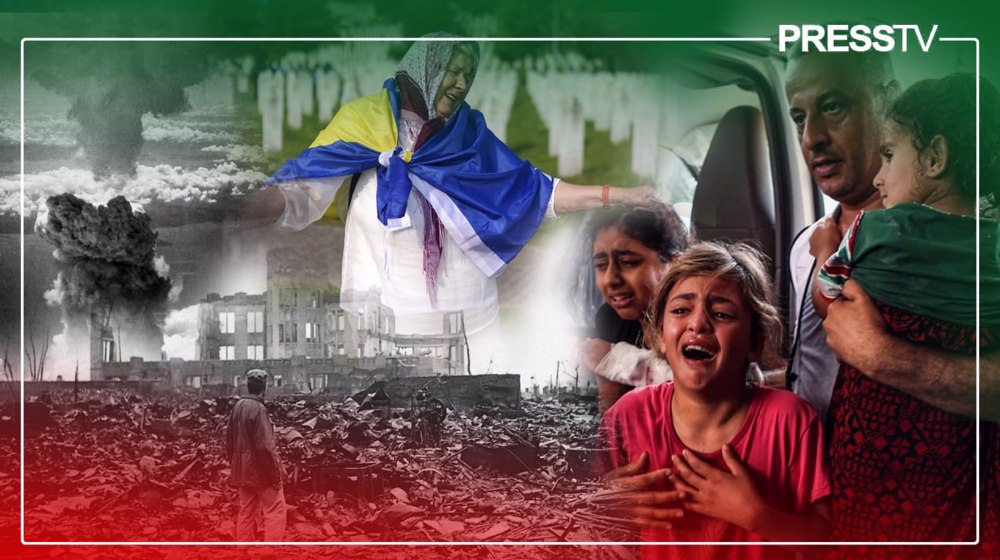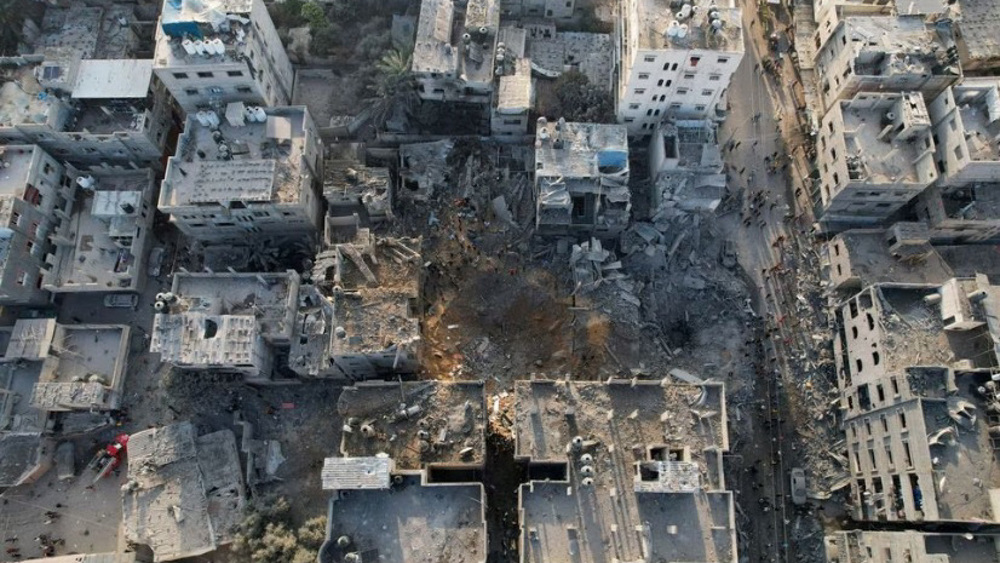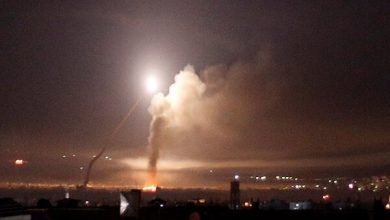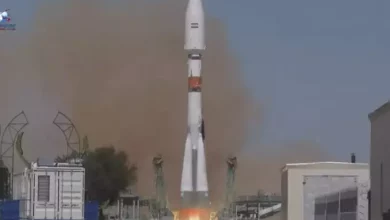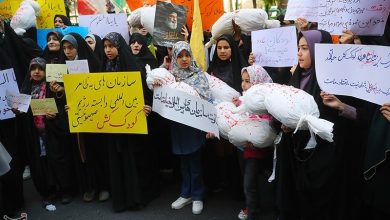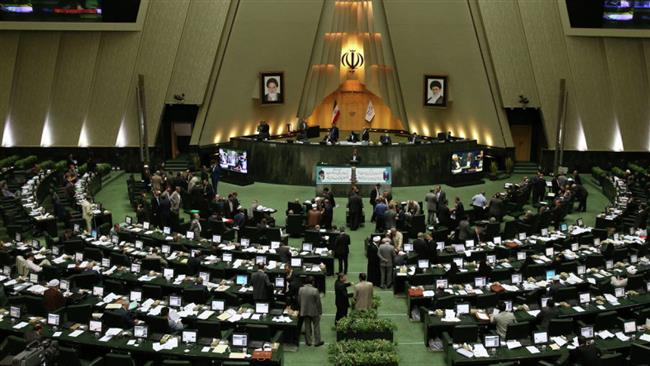Satellite analysis shows quarter of buildings in northern Gaza destroyed, damaged
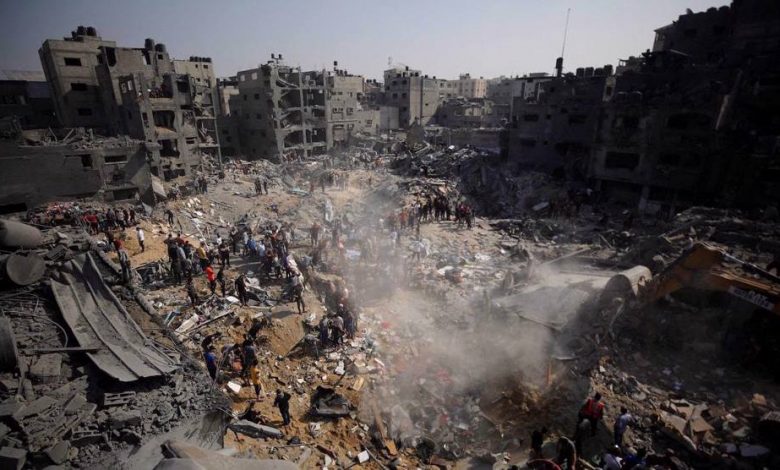
At least a quarter of buildings in the northern part of the Gaza Strip has been either destroyed or damaged by Israeli strikes as the Tel Aviv regime’s onslaught against the besieged coastal enclave continues unabated, according to a new analysis of satellite data.
The analysis also discloses that the Israeli military continues to strike various neighborhoods in southern Gaza, including areas along the main evacuation routes, even after urging Palestinian civilians from the north to relocate there,
The analysis of the satellite data was conducted by Jamon Van Den Hoek of Oregon State University and Corey Scher of CUNY Graduate Center.
Israel ordered more than 1.1 million people living in the northern sector of the Strip to move south of the territory. Hundreds of thousands heeded the order, but many remained, saying there is no safe place to take shelter in.
Israeli air raids have leveled many homes and residential buildings throughout the entire Gaza Strip. Mosques and hospitals have also been badly damaged.
The death toll from Israel’s genocidal attacks on the Gaza Strip has reached at least 9,488 people, including 3,900 children and more than 2,405 women. At least 23,516 people have been wounded as well.
The Tel Aviv regime launched the war after Gaza’s resistance groups conducted Operation al-Aqsa Storm, their biggest operation against the occupying entity in years.
Since the onset of the war, the US has backed Tel Aviv’s ferocious attacks on the Palestinian territory as a means of “self-defense.”
Washington has also been casting its veto against the United Nations Security Council resolution that calls on the occupying regime to cease its aggression.
Israel bombs school where thousands are sheltering, killing over a dozen
Meanwhile, Palestinian Ministry of Health says at least 15 people have been killed and more than 54 others were wounded on Saturday, when an Israeli airstrike targeted al-Fakhoura school.
Thousands of Palestinians were sheltering at the school after being displaced from their homes by Israeli aerial assaults. The school is located in the Jabalia area in Gaza.
Local sources described “scattered limbs” all over the school, while a crater in the ground where the bomb hit was shown in live footage.
UN chief ‘horrified’ by Israeli strike on an ambulance convoy at Shifa Hospital
Furthermore, United Nations Secretary-General Antonio Guterres said last night that he was “horrified” by an Israeli airstrike against an ambulance convoy transporting wounded children outside Shifa Hospital in Gaza City, killing and wounding dozens of people, mainly children.
“I am horrified by the reported attack in Gaza on an ambulance convoy outside Al Shifa Hospital. The images of bodies strewn on the street outside the hospital are harrowing,” said Guterres in a statement, adding, “Now, for nearly one month, civilians in Gaza, including children and women, have been besieged, denied aid, killed, and bombed out of their homes. This must stop.”
The UN chief said the humanitarian situation in Gaza is horrific.
“Not nearly enough food, water and medicine are coming in to meet people’s needs. Fuel to power hospitals and water plants is running out. UNRWA shelters are at nearly four times their full capacity and are being hit in bombardments.”
“Morgues are overflowing. Shops are empty. The sanitation situation is abysmal. We are seeing an increase in diseases and respiratory illnesses, especially among children. An entire population is traumatized. Nowhere is safe,” he said.
Guterres renewed his appeal for a humanitarian ceasefire.
“International humanitarian law must be respected. Civilians and civilian infrastructure, including humanitarian and medical workers and assets must be protected. Civilians must also not be used as human shields.”
“Essential supplies and services and unimpeded humanitarian access must be safely allowed into and across Gaza at a scale commensurate with this dramatic situation,” Guterres said, calling on all those with influence to exert it “to ensure respect for the rules of war, end the suffering and avoid a spillover of the conflict that could engulf the whole region.”
